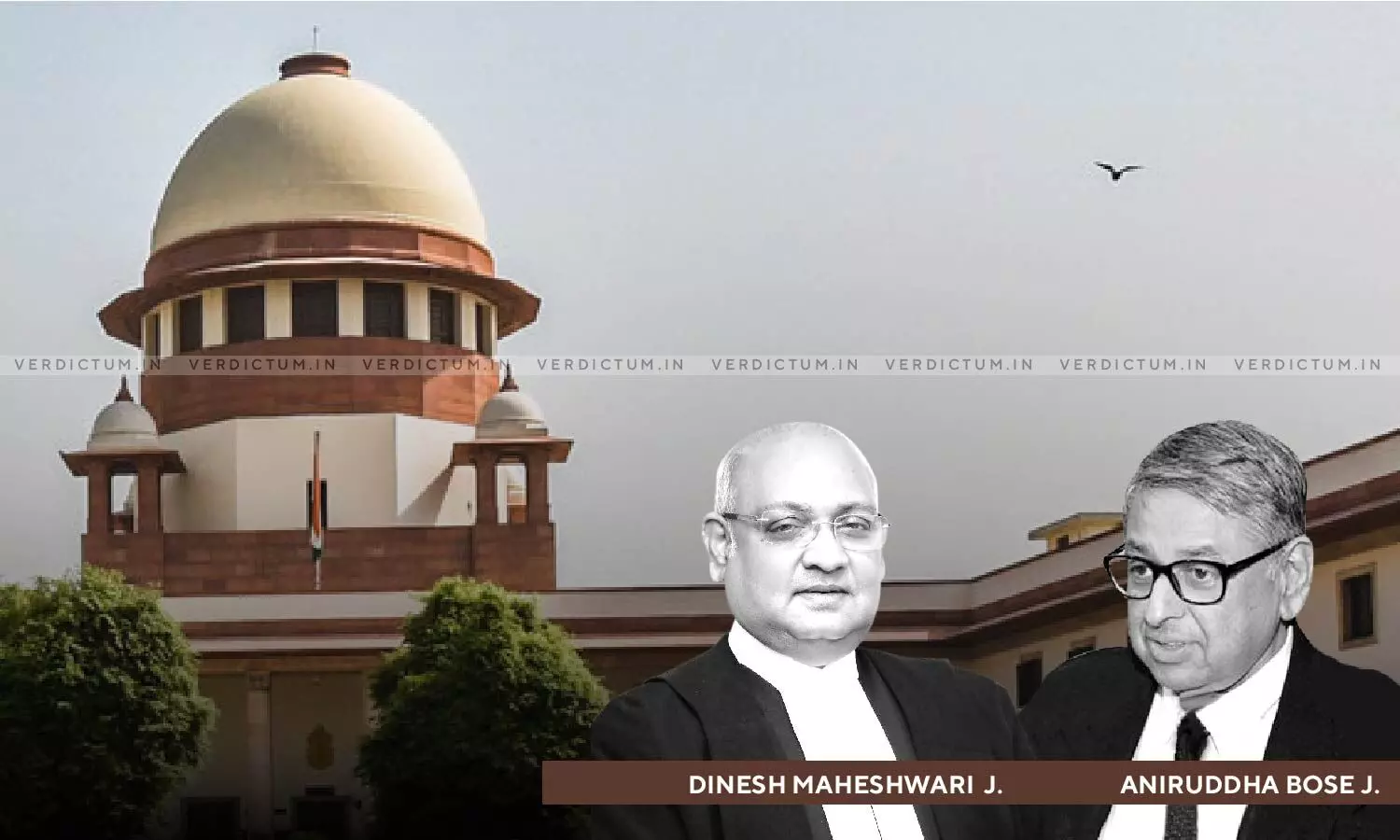
False Response By Accused In A Case Based On Circumstantial Evidence Would Become Additional Link In Chain Of Events: SC
 |
|The Supreme Court has reiterated that in a case based on circumstantial evidence, the accused offering a response that is not true, such a response, in itself, would become an additional link in the chain of events.
The bench of Justice Dinesh Maheshwari and Justice Aniruddha Bose was dealing with an appeal challenging the Judgment of the Gauhati High Court dismissing the appeal against the Judgment passed by the Trial Court whereby the appellant-accused was held guilty of murdering his wife.
The prosecution case, based on circumstantial evidence, has been that the victim died while residing with the appellant and that her dead body was brought to the police station by her grandfather who made an ejahar that ever since marriage the deceased was subjected to physical and mental torture by the appellant, who caused her death by inflicting grievous injuries.
It has been the case of the prosecution that the appellant-accused was absconding after the incident and was arrested two days later, at a distant place.
Advocate S. Mahendran represented the accused-appellant whereas Advocate Shuvodeep Roy represented the Respondent.
The Court observed that the fundamental facts established by the prosecution evidence were that the dead body of the victim was brought to the police station and the post-mortem report made it clear that the victim had died because of asphyxia, which was a result of throttling.
The Court noted that the other undeniable fact has been that the victim was the wife of the appellant and before her death, she was living with the appellant. The Court observed that it has not been the case of the appellant or even the private witnesses that anyone else was also living with them.
The Court held that the story sought to be suggested by witnesses about the illness and hospitalization of the victim had been of blatant falsehood and the appellant-accused had categorically endorsed that story and accepted the testimony of those witnesses as correct.
The Court also noted that the appellant-accused was admittedly not available at his place of residence at the relevant time but was admittedly away to a different place. The Court observed that the appellant had suggested that he went to the other place to procure medicines for himself. The Court noted that neither his nature of illness was shown nor he was found carrying any medicine.
The bench observed that the prosecution was able to establish the chain of circumstances leading to the conclusion that the appellant is guilty of the offence of murder of the victim, his wife.
The Court noted that "…all the aforesaid facts and factors, which ought to be in the knowledge of the appellant, are either not clarified or the explanation given by the appellant turns out to be false. Hence, in the given set of facts and circumstances, the legal consequence is that such omission coupled with such falsehood indeed provide additional links in the chain of circumstances."
The Court further observed that the falsehood cooked up by the witnesses (regarding illness and hospitalization of the victim) coupled with the undischarged burden of Section 106 of the Evidence Act provide such strong links in this matter that the chain of circumstances is complete, leading to the conclusion on the guilt of the appellant beyond any doubt.
The Court noted it was not a case where two views were possible.
Accordingly, the appeal was dismissed.
Cause Title- Md. Anowar Hussain v. State of Assam
Click here to read/download the Judgment